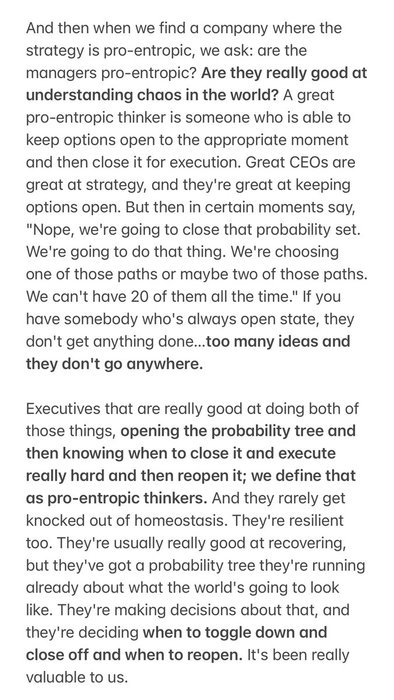Sublime
An inspiration engine for ideas


The Bob Rubin trade? Robert Rubin, a former Secretary of the United States Treasury, one of those who sign their names on the banknote you just used to pay for coffee, collected more than $120 million in compensation from Citibank in the decade preceding the banking crash of 2008. When the bank, literally insolvent, was rescued by the taxpayer, he
... See moreNassim Nicholas Taleb • Skin in the Game: Hidden Asymmetries in Daily Life
One of our favorite CEF managers is Scott Page. He’s been with Eaton Vance, one of the oldest investment management firms in the US, since 1989. He has conducted the Eaton Vance Floating-Rate Income Trust (EFT, not to be confused with ETF, an exchange-traded fund) brilliantly since inception—through rising and falling rate cycles, through rising
... See moreTom Jacobs • How to Retire on Dividends: Earn a Safe 8%, Leave Your Principal Intact
Gould did not take a title, but had a seat on the executive committee and had four additional board seats, which he filled with his brokers.
Charles R. Morris • The Tycoons: How Andrew Carnegie, John D. Rockefeller, Jay Gould, and J. P. Morgan Invented the American Supereconomy
The Amalgamated, however, took an enlightened view of technological progress, expressly accepting that tonnage-based pay scales would fall as productivity rose, and that mechanization would gradually eliminate traditional job categories. (British steel executives would have found such flexibility extraordinary.) Carnegie executives, however,
... See moreCharles R. Morris • The Tycoons: How Andrew Carnegie, John D. Rockefeller, Jay Gould, and J. P. Morgan Invented the American Supereconomy
According to Ivar, by 1932 he had 225 subsidiaries. He had operations in every civilized country except Russia, and he manufactured three-quarters of the world’s matches. Ivar had secured match monopolies in twenty-four countries. During seven years, he had loaned almost 300 million dollars to European governments. Ivar’s loans had helped borrower
... See moreFrank Partnoy • The Match King: Ivar Kreuger, The Financial Genius Behind a Century of Wall Street Scandals
EULER ACI is a carrier that covers factors’ accounts receivable. Founded in 1893, this